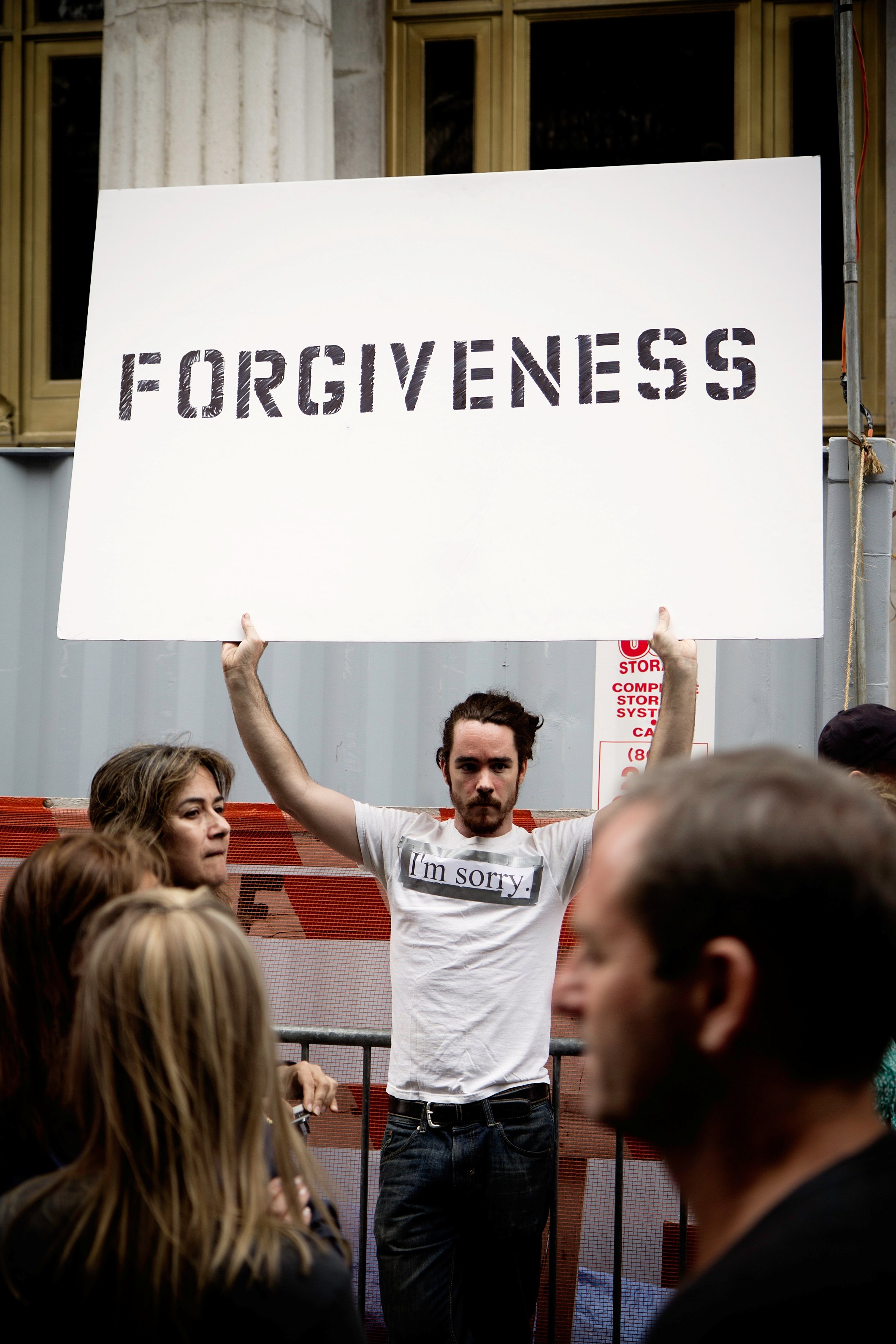How to Forgive Someone: Finding the Strength to Let Go and Move On
How to Forgive Someone: Finding the Strength to Let Go and Move On
Blog Article
Recognizing the Value of Forgiveness in Healing Relationships
Forgiveness is usually checked out as an easy act of releasing, yet its relevance in healing partnerships extends much beyond simple absolution. It functions as a crucial device for emotional launch, permitting individuals to browse the complexities of discomfort and animosity. Comprehending the nuanced differences between forgiveness and settlement can illuminate the path towards much healthier interactions. As we check out the multifaceted benefits of mercy, one have to think about just how these principles can change not just individual relationships however additionally the broader social material. What continues to be to be revealed is the profound effect mercy can carry specific development and communal harmony - The importance of forgiveness.
The Definition of Mercy
Although forgiveness is typically viewed as a basic act of allowing go, its interpretation includes an intricate interaction of emotional and psychological procedures. At its core, forgiveness is the mindful decision to release feelings of bitterness or revenge towards a private or team that has created injury. This procedure is not just concerning discharging the offender; rather, it involves a profound psychological makeover that can bring about individual growth and healing.
Mercy is complex, often identified by a person's interior struggle to reconcile their discomfort with the desire for peace. It requires recognizing the misdoings dedicated, processing the linked feelings, and eventually making a choice to progress without the concern of bitterness. This choice frequently entails a cognitive change, where one reframes their understanding of the transgression and the wrongdoer, enabling compassion and comprehending to arise.
Significantly, forgiveness does not indicate excusing the behavior or neglecting the violation; it is an intentional act that prioritizes psychological wellness. By defining forgiveness in this manner, we can value its role in facilitating much healthier partnerships and cultivating emotional strength, setting the phase for deeper exploration right into its benefits.
Psychological Benefits of Mercy
Mercy provides substantial emotional advantages that can profoundly affect a person's mental wellness and overall wellness. When an individual picks to forgive, they proactively release feelings of animosity, bitterness, and rage, which can or else create a heavy psychological burden. This release usually results in a decrease in tension and anxiousness, promoting a feeling of tranquility and psychological stability.
In addition, forgiveness promotes a raised capability for compassion and concern. By understanding the viewpoint of the offender, people can grow a deeper psychological resilience, which improves their capacity to cope with future difficulties. This procedure not just enhances psychological regulation but also contributes to a much more favorable outlook on life.
Additionally, forgiving others can strengthen one's self-worth and self-regard. It permits individuals to redeem their individual power, breaking devoid of the adverse cycles of victimhood - The importance of forgiveness. This newly found go now empowerment can bring about much healthier psychological actions and more powerful social connections
Forgiveness vs. Reconciliation
The distinction in between mercy and settlement is vital in recognizing the characteristics of healing partnerships. Mercy is an interior process wherein an individual picks to allow go of animosity and unfavorable feelings towards someone who has created harm. It is primarily a personal trip, concentrated on psychological release and self-healing, allowing one to progress without lugging the worry of previous grievances.
On the other hand, reconciliation entails imp source rebuilding and recovering the partnership to a state of trust fund and mutual regard. This process usually needs open interaction, energetic participation from both events, and a commitment to attending to the underlying issues that brought about the problem. While mercy can happen individually, reconciliation necessitates the desire of both people to take part in discussion and job toward a common understanding.
It is very important find more info to note that mercy does not constantly cause reconciliation. An individual might forgive an additional without opting to bring back the relationship, especially if trust fund has been irrevocably damaged or if the connection is regarded undesirable. Recognizing this difference allows individuals to navigate their emotions effectively and make educated decisions concerning their partnerships.
Actions to Cultivate Forgiveness
Cultivating mercy is a calculated procedure that involves several essential steps focused on promoting psychological recovery. The initial step is acknowledging the pain triggered by the violation. Recognizing one's sensations is crucial, as it allows individuals to process their feelings genuinely.
Next, assessing the incident and understanding its impact can offer clearness. This representation must include taking a look at the inspirations behind the wrongdoer's actions and identifying that every person is imperfect.
The 3rd step entails making a conscious decision to forgive. This choice is critical, as it signifies a willingness to allow go of resentment and progress.
Ultimately, revealing feelings in a constructive manner can be beneficial - The importance of forgiveness. Whether via journaling, chatting with a relied on pal, or seeking therapy, expression of feelings can help in the forgiveness trip
Real-Life Instances of Forgiveness

In another example, a close-knit group of buddies encountered a considerable break after one participant accidentally shared an exclusive key. Rather of nurturing resentment, the affected buddy chose to forgive, understanding the importance of valuing the friendship over the blunder. This choice motivated open dialogue and ultimately reinforced their link.

Final Thought
In final thought, mercy plays a critical function in the recovery of partnerships by helping with the launch of negative emotions and cultivating compassion. By identifying in between forgiveness and settlement, individuals can engage in a constructive process that improves psychological health.

Report this page